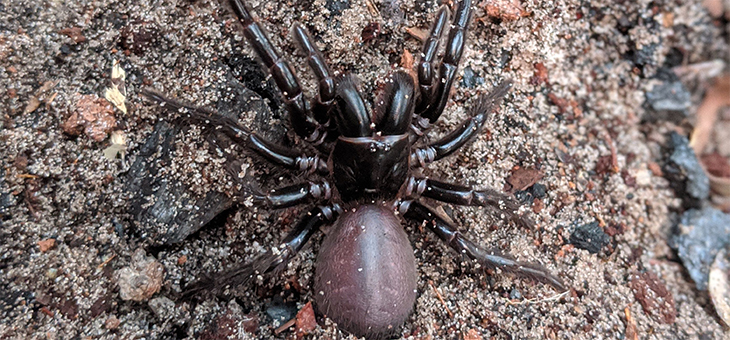Australia’s funnel web spider is one of the deadliest in the world, and the very mention of it can strike fear into many, but scientists believe its venom could hold the key to treating heart attack victims.
Scientists from the University of Queensland have developed a drug candidate for a potentially life-saving treatment for heart attack victims from the venom of the Fraser Island funnel web spider.
They believe that the medicine can prevent damage caused by a heart attack and extend the life of donor hearts used for organ transplants.
GAME CHANGER: Pain-free diabetes test
An estimated 430,000 Australians have had a heart attack at some point in their lives, and there are around 57,000 heart attack victims every year, according to the figures from the Australian Bureau of Statistics (ABS) and the Australian Institute of Health and Welfare (AIHW).
Dr Nathan Palpant, from the University of Queensland, said the drug candidate worked by stopping a ‘death signal’ sent from the heart in the wake of an attack.
“After a heart attack, blood flow to the heart is reduced, resulting in a lack of oxygen to heart muscle,” Dr Palpant said.
HEART STARTER: Are you drinking your coffee too early
“The lack of oxygen causes the cell environment to become acidic, which combine to send a message for heart cells to die.
“Despite decades of research, no-one has been able to develop a drug that stops this death signal in heart cells, which is one of the reasons why heart disease continues to be the leading cause of death in the world.”
The scientists tested the protein formed from the venom of the spider on beating human heart cells exposed to heart attack stresses to see if it improved their survival.
TIME CHANGE: How to become an early riser
“The Hi1a protein from spider venom blocks acid-sensing ion channels in the heart, so the death message is blocked, cell death is reduced, and we see improved heart cell survival,” Dr Palpant said.
There are currently no drugs in clinical use that prevent the damage caused by heart attacks.
St Vincent’s Hospital senior cardiologist Professor Peter Macdonald, who also worked on the project, said the result had been decades in the making.
“This will not only help the hundreds of thousands of people who have a heart attack every year around the world, it could also increase the number and quality of donor hearts, which will give hope to those waiting on the transplant list,” Prof. Macdonald said.
“The survival of heart cells is vital in heart transplants – treating hearts with Hi1a and reducing cell death will increase how far the heart can be transported andimprove the likelihood of a successful transplant.
“Usually, if the donor heart has stopped beating for more than 30 minutes before retrieval, the heart can’t be used – even if we can buy an extra 10 minutes, that could make the difference between someone having a heart and someone missing out. For people who are literally on death’s door, this could be life-changing.”
Previous research from the University of Queensland’s Professor Glenn King identified that the small protein in the venom of the Fraser Island funnel web spider had markedly improved recovery in stroke victims.
“We discovered this small protein, Hi1a, amazingly reduces damage to the brain even when it is given up to eight hours after stroke onset,” Prof. King said.
“It made sense to also test Hi1a on heart cells, because like the brain, the heart is one of the most sensitive organs in the body to the loss of blood flow and lack of oxygen.
“For heart attack victims, our vision for the future is that Hi1a could be administered by first responders in the ambulance, which would really change the health outcomes of heart disease,” he said.
“This is particularly important in rural and remote parts of Australia where patients and treating hospitals can be long distances apart – and when every second counts.
“Also, this could help for the transfer of donor hearts for cardiac transplantation – allowing these donor hearts to be transported over longer distances and therefore increasing the network of available donors and recipients.”
The University of Queensland team is hoping to start clinical trials on humans for both stroke and heart disease within two to three years.
Does this research make you feel differently about spiders? Why not share your thoughts in the comments section below?
If you enjoy our content, don’t keep it to yourself. Share our free eNews with your friends and encourage them to sign up.

